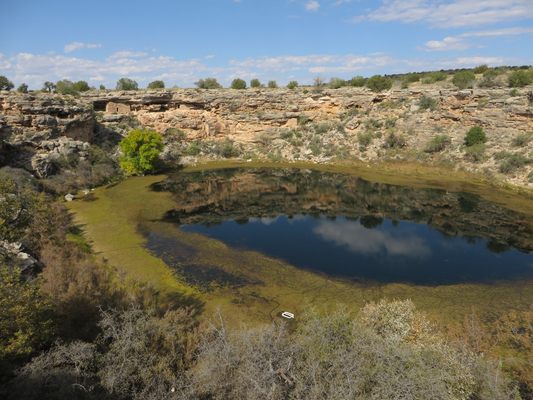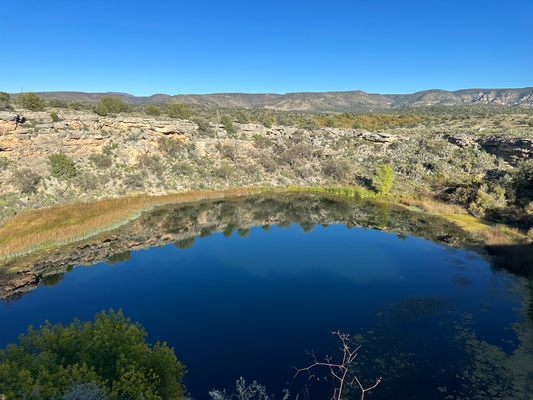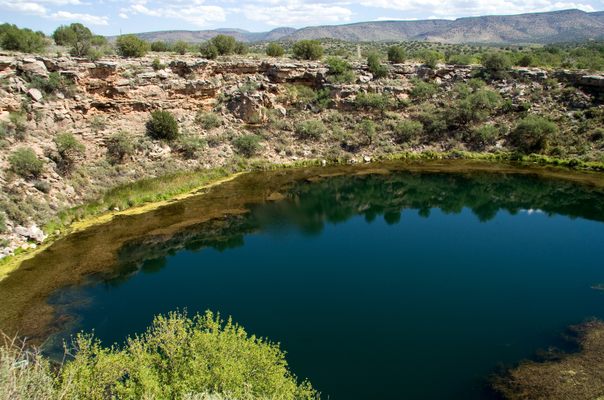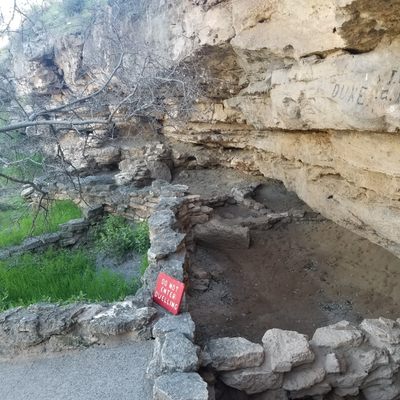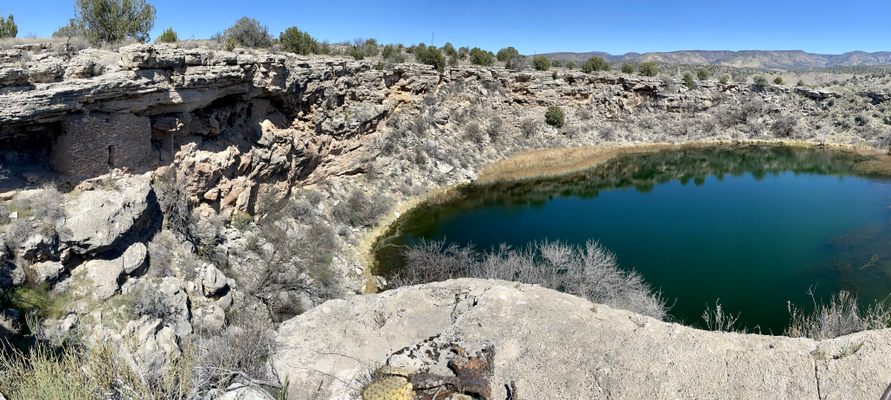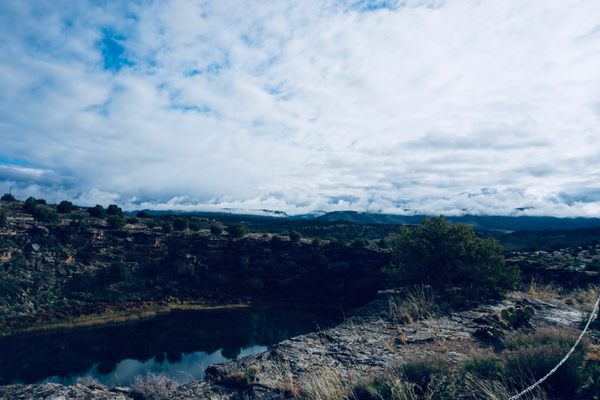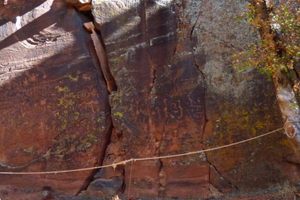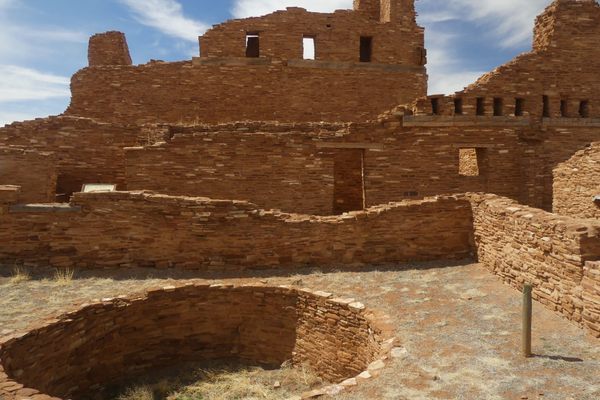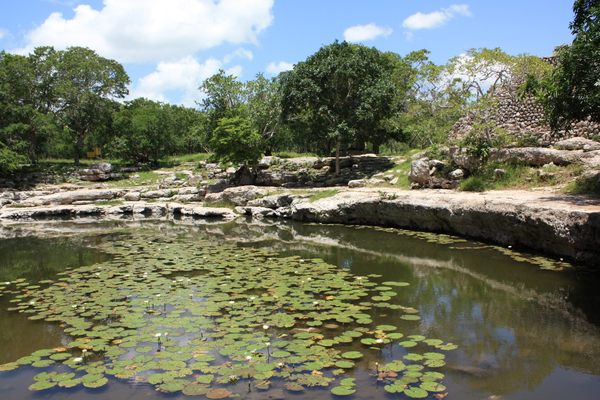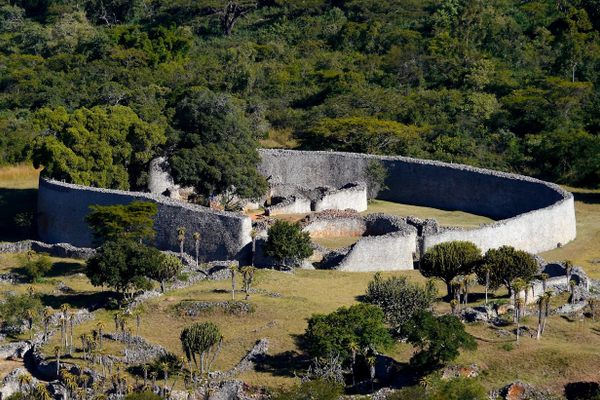About
This desert watering hole has seen activity for thousands of years. Like its partner, the nearby Montezuma Castle, its name has nothing to do with the famous Aztec emperor, but everything to do with early European/American mistaken assumption that he had something to do with the area.
The part of Arizona where Montezuma Well sits has been inhabited by a number of groups over time, dating back as far as 10,000 years. You can find ruins of cliff dwellings around the rim of the well, which were inhabited by the Sinagua people between the 12th and 15th centuries.
But the history of this desert water features dates back much further than that. About 12 million years ago, the Verde Valley was covered by a large shallow lake. After that lake dried up about 2 million years ago, leaving behind a bed of thick limestone. Over the years, underground streams carved out caverns within that stone. Montezuma Well is one of those caverns—when the layer of rock at the surface crumbled, it became a sinkhole. Its opening measures 368 feet across, and more than a million gallons of water flow through it every day.
The water in Montezuma Well is heavily carbonated and contains significant levels of arsenic, neither of which lend themselves to a thriving fish population. But the unique environment of this watering hole supports several species that are found nowhere else in the world, including a water scorpion (Ranatra montezuma) that feeds on the amphipods found in the water, a leech (Motobdella montezuma), and a tiny freshwater mollusk called the Montezuma Well springsnail (Pyrgulopsis montezumensis).
Some say that whatever exits the well, can never return. In 2006, the National Park Service sent divers into the water. They sent probes, cameras, and other equipment down and learned that what appeared to be the bottom of the well was actually a column of "fluidized sand" that more than doubled the estimated depth of the well.
Related Tags
Know Before You Go
While the view from the top of the well is nice, it is worth it to hike down to the bottom of the well. You will be rewarded with some early cave dwellings at the end of the trail, as well as a better view of the cliff dwellings at the top of the trail.
Also, a short hiking trail leads down to Beaver Creek which offers some shade and respite from the summer heat.
Community Contributors
Added By
Published
February 2, 2023
Sources
- https://www.nps.gov/moca/learn/photosmultimedia/dive-to-the-bottom-of-the-well.htm
- http://npshistory.com/publications/moca/montezuma_well/index.htm
- https://blogs.scientificamerican.com/rosetta-stones/visiting-a-desert-karst-oasis-the-magic-of-montezuma-well/
- https://www.desertusa.com/desert-arizona/montezuma-well.html
